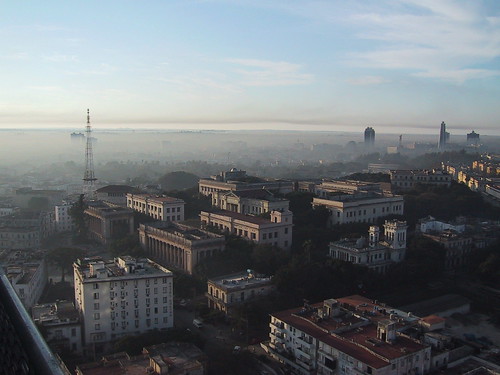Cuba Funding the Internet?
According to government official in its Commission of Electronic Commerce, Juan Fernandez, Cuba is funding the Internet. While this may seem a little  bit surprising, coming from a country whose widely known for limiting citizen access to the ‘net and censoring any access a citizen does find, the problem is a little complicated:
bit surprising, coming from a country whose widely known for limiting citizen access to the ‘net and censoring any access a citizen does find, the problem is a little complicated:
"Once the underdeveloped countries have undertaken this tremendous effort and sacrifice to create the minimum conditions for them to be able to connect up to the Internet, then they find themselves confronted with a situation whereby they have to pay for the connection up to the Internet at the same level as the developed countries, even though this might also be a channel used by users in the developed countries.
Which means that you can have technical means whereby you can do away with this paradox. And these poor countries seem to be financing (the) Internet by this system."
The only problem with making this argument, Wired’s Declan McCullagh points out, was that representatives from industry and researchers responsible for hooking Latin American countries up to the net were at the UN Internet Governance Forum during which Fernandez posed his argument and could respond, citing instead Cuba’s telecommunications monopoly and censorship policies as the source of the island nation’s struggle to pay for its Internet connection. Bill Woodcock, research director for the non-profit Packet Clearing House, stepped up and noted these challenges:
"Remember that the Internet is an end-to-end model. Zero percent of Cubans are connected to the Internet. The Cuban government operates an incumbent phone company, which maintains a Web cache. Cubans who wish to use the Internet browse the government Web cache. They do not have unrestricted access to the Internet.
And the question about whether there is an inequality in Cuban access to the global Internet, ask yourself whether a Cuban Internet service provider would face any challenges in connecting to a network in the United States or in Europe. And the answer is that, no, these are unregulated markets. They would face exactly the same costs as anyone anywhere else in the world."
The ultimate bit of irony? The UN Summit that this is all taking place at, opened by UN Secretary General Kofi Annan, is occurring at a hotel in Athens that — get this — doesn’t have working Internet. Ooops…